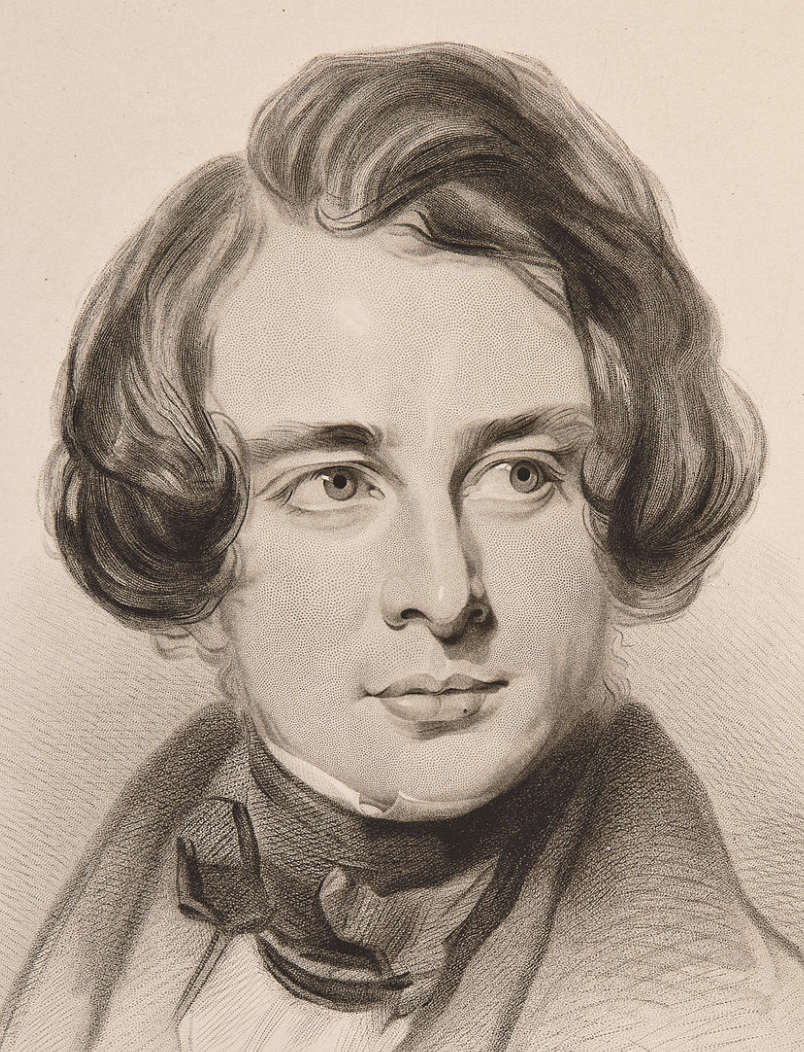On this date in 1812, novelist Charles Dickens was born in England. As a child he chafed at the two-hour religious services he and his family attended. His brief experience working as a 12-year-old in a factory when his father was sent to debtor’s prison had a life-changing effect on him. Although he returned to school, he began work as a clerk at age 15 when his family was evicted. Moving to freelance reporting, he soon turned to story writing.
Dickens launched his budding celebrity with the serialization of his first book, The Pickwick Papers (1836-37). He married Catherine Hogarth in 1836. The death of her younger sister Mary, virtually in Dickens’ arms, was said to inspire Little Nell. The Dickenses had 10 children, nine of whom survived. Long incompatible, they separated, to Catherine’s grief, in 1858, when Dickens fell in love with actress Ellen Ternan.
Dickens’ hugely successful novel-writing career included Oliver Twist (serialized 1837-39), A Christmas Carol (1844), David Copperfield (1849-50), A Tale of Two Cities (1859) and Great Expectations (1861). His books called public attention to the scandalous conditions of child labor during the Industrial Revolution. His social conscience brought him to North America in 1842 to speak against slavery (and for international copyright).
Dickens was orthodox in many respects, praying daily and writing a “Life of Our Lord” (which took out much of the superstition) for his children. In the early 1840s he joined for a time the creedless Unitarians, describing it as a religion that “ventures to pass judgement on none.” Although he returned to the Church of England, he quit it once again, saying, “I cannot sit under a clergyman who addresses his congregation as though he had taken a return ticket to heaven and back.”
Dickens actively opposed a bill to ban public activity and recreational outlets on Sundays, writing in an essay titled “Sunday Under Three Heads” about the “intolerant zeal and ignorant enthusiasm” of the pious: “Look into your churches — diminished congregations, and scanty attendance. People have grown sullen and obstinate, and are becoming disgusted with the faith which condemns them to such a day as this, once in every seven.” (D. 1870)
IMAGE: A sketch of Dickens on his 1842 visit to North America.


